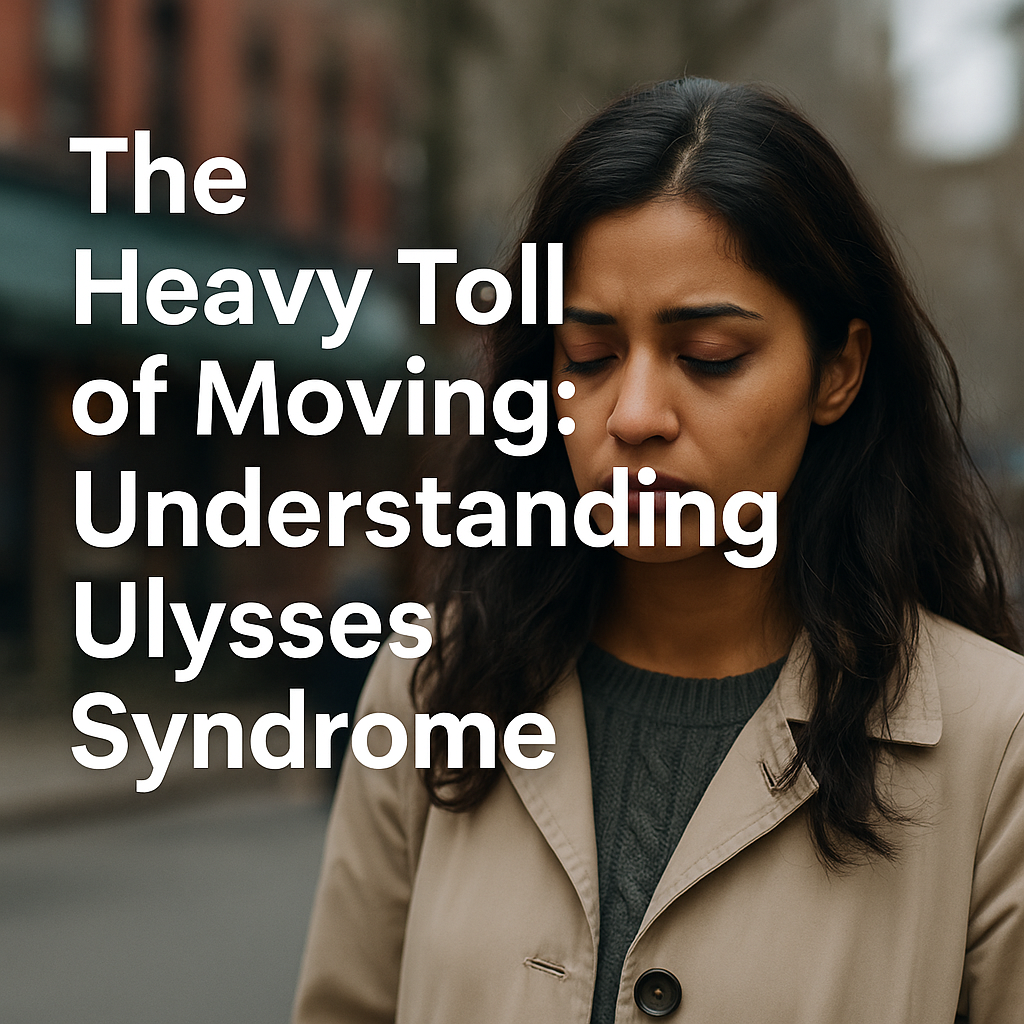Website designed with the B12 website builder. Create your own website today.
Start for free
Ulysses Syndrome: When Stress Becomes Overwhelming
Ulysses Syndrome, or the Immigrant Syndrome of Chronic and Multiple Stress, describes a heavy psychological toll experienced by many migrants and refugees. It takes its name from the myth of Odysseus (Ulysses), whose long, grueling journey home mirrors the experience of migrants navigating separation, instability, and cultural isolation.
Unlike a diagnosed mental illness, Ulysses Syndrome is a natural response to extreme chronic stress. The problem is not in the mind—it’s in the conditions.
Why Now? Why More Often?
In the last decade, global migration has surged. The United States alone has seen over 25 million new immigrants since 2015, and with global conflict, climate disasters, and economic instability, numbers continue to rise. That influx means more people are exposed to prolonged stress without adequate resources.
This leads to widespread, but under-recognized symptoms:
Many of these symptoms mimic depression or anxiety but are actually linked to unresolved environmental pressures.
What Triggers Ulysses Syndrome?
The syndrome stems from the accumulation of multiple stressors:
What makes Ulysses Syndrome unique is that people still function. They’re motivated, hopeful, and striving. But the emotional and physical cost is profound.
Who Is Most Affected?
While anyone can experience Ulysses Syndrome, research shows it disproportionately affects:
Increased stress loads often correlate with poorer health outcomes and limited access to care.
What Can Help?
There is no one-size-fits-all cure, but resilience and recovery are possible. Here’s what works:
1. Community Support
2. Culturally Informed Therapy
3. Education for Providers
4. Policy Changes
A Story of Hope
“I used to think I was weak for crying all the time,” says Andrés, a 38-year-old father from Honduras. “But then my counselor explained Ulysses Syndrome, and I realized—I’m human. I’m grieving. And healing is possible.”
Final Thoughts
Understanding Ulysses Syndrome isn’t just an academic exercise—it’s a call to action. With awareness, empathy, and culturally responsive care, we can offer relief to millions silently suffering under the weight of migration-related stress. We can rewrite the story of the immigrant journey to include hope, healing, and humanity.